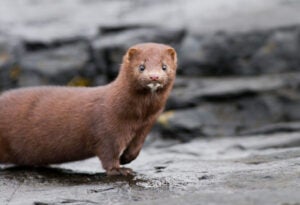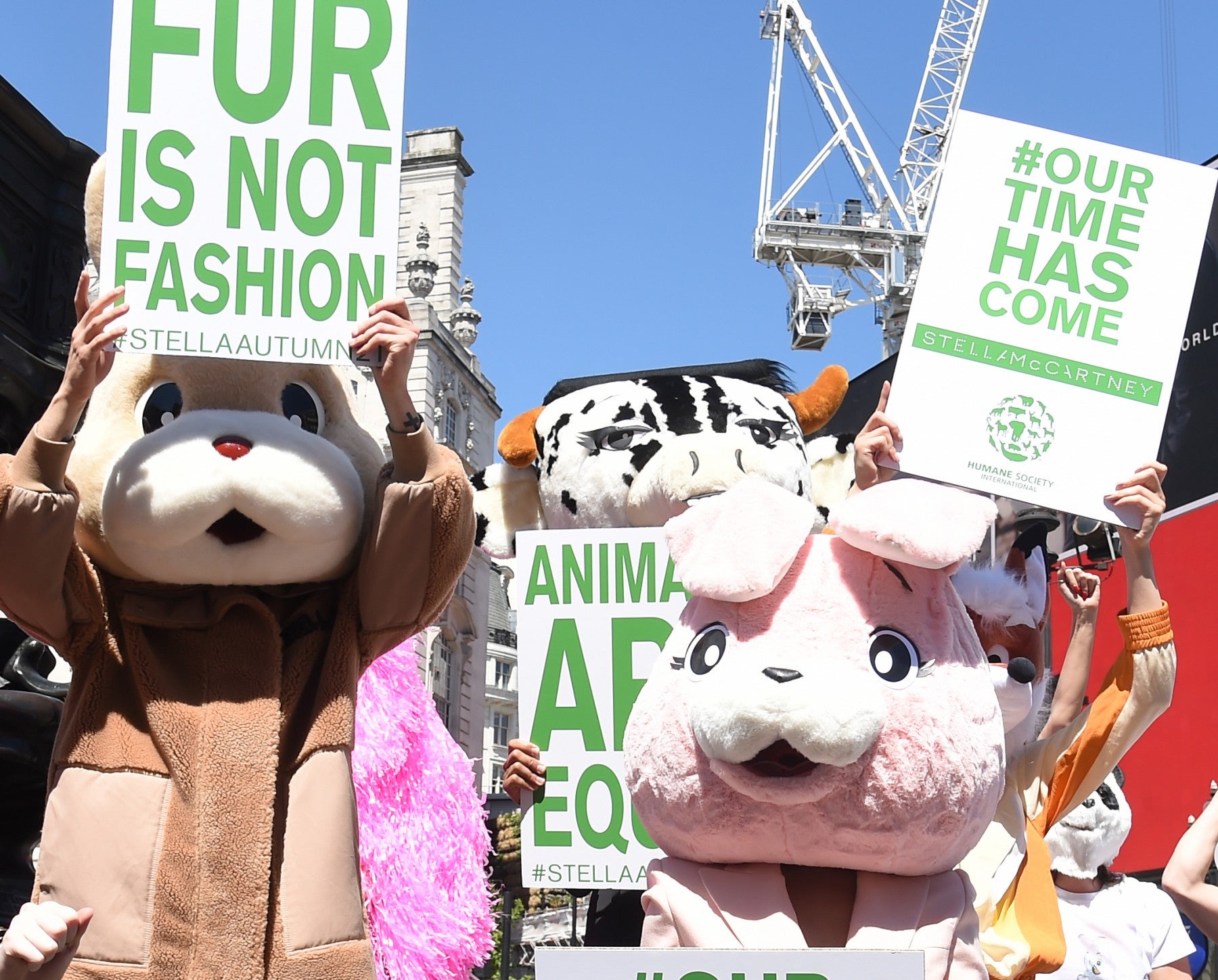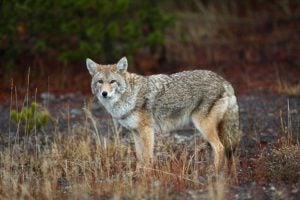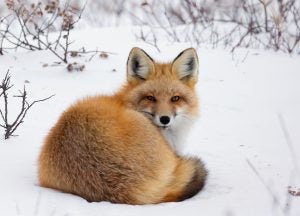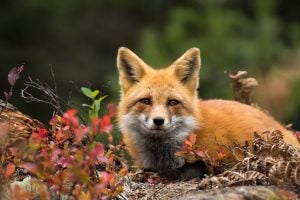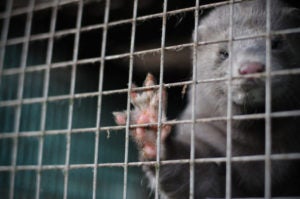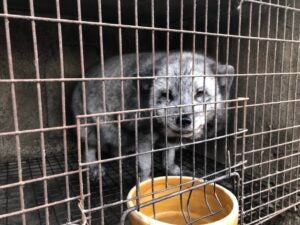
LONDON—A group of more than 100 cross-party MPs and Peers has written to the Secretary of State for Environment, Food and Rural Affairs Rt Hon George Eustice MP calling on the UK Government to cut Britain’s ties with the cruel fur industry by banning the import and sale of animal fur. Humane Society International/UK, which leads the Fur Free Britain campaign and co-ordinated the letter, is also calling on Defra to publish its analysis of the 30,000 responses submitted to its Call For Evidence on the fur trade earlier this year.
Fur farming was banned across the UK more than two decades ago in 2000, with Britain’s last remaining fur farm closing its doors in 2003. But, since then, Britain has imported more than £800 million worth of fur from countries including Finland, China, France and Poland, where tormented animals such as foxes and mink suffer for their entire lives in barren battery cages, measuring around one square metre. Continuing to allow the import and sale of fur deemed too cruel to produce on our own shores is an unacceptable double standard, say the Parliamentarians and HSI/UK.
The letter reads: “We strongly believe the fur trade is a cruel and outdated practice, which has no place in the UK.
The Government has previously said that a sales ban would be incompatible with our membership of the European Union and, as such, no action could be taken at that time. The UK has now left the EU, and the Government has an opportunity – following the call for evidence on the fur trade held earlier this year – to act as a global leader in moral standards and extend existing fur trade bans (for cat, dog and seal fur) to all animals, thus eliminating illogical protections for some species above others.
With the vast majority of UK high street stores now fur-free, a ban would have limited impact on businesses, and a proper and reasonable phase-out period would ensure that the few businesses still centred on fur could transition to alternative materials.”
Last autumn, Defra Minister Lord Goldsmith stated that: “Fur farming has rightly been banned in this country for nearly 20 years and at the end of the transition period we will be able to properly consider steps to raise our standards still further. That is something the Government is very keen to do.”
In their letter to the Secretary of State, MPs and Peers are now urging the Government to make good on that pledge.
Conservative MP Christian Wakeford who championed the letter, said: “The UK has entered a new chapter in its trading relationship with the rest of the world: banning fur sales will send a strong message that we intend to use this new beginning to set ourselves apart as world leaders in animal welfare. We were trailblazers in banning fur farming almost 20 years ago, and now Brexit has given us the opportunity to set a global example on animal welfare again. There has never been a better time to end our association with this cruel, outdated and unnecessary practice and I hope the strength of cross-party feeling on this issue encourages the Government to introduce a ban at the earliest opportunity.”
SNP MP Dr Lisa Cameron said: “The UK’s current position on fur is entirely out of step with UK public opinion. Recent polling shows that 72% of the British public support a fur sales ban, and an estimated 83% have never worn fur – this is reflected by our high streets, where almost all stores are ‘fur free.’ Government should take heed of public sentiment, reflected and reinforced by the support of over one hundred Parliamentarians for this cross-party letter, and pursue a fur sales ban without delay.”
Labour MP Maria Eagle said: “The coronavirus pandemic should force governments the world over to reconsider the way we farm, keep, and interact with animals. Exploiting fur-bearing wild species in unsanitary, overcrowded and inhumane factory farms is not only cruel, but also imposes potentially devastating public health risks. Our cross-party letter to the Environment Secretary follows the recent call by over 60 vets and virologists, encouraging governments globally to end fur farming to prevent further disease outbreaks. Following the recent call for evidence on the fur trade in the UK, Ministers must act now to ban fur sales in this country.”
More than one million petition signatures have been gathered in support of #FurFreeBritain, and public opinion polls consistently show that a UK fur sales ban would also enjoy widespread public backing. A Yonder opinion poll published in May 2021 found that 72% of the British public support a ban on the import and sale of all animal fur, replicating exactly the majority support demonstrated by a YouGov opinion poll a year earlier which also revealed Brits’ scathing view of fur as ‘unethical,’ ‘outdated,, ‘cruel’ and ‘out of touch.’
Claire Bass, executive director of Humane Society International/UK, said: “Furs from around two million tormented animals are imported into the UK each year and there is huge public and political support for Britain to stop this trade in cruelty. This letter shows clear cross-party political appetite for the Government to bring forward legislation to ban fur imports and sales.
We are also urging the Government to publish its analysis of the 30,000 responses received from members of the public and industry to its recent Call for Evidence. If opinion polls are anything to go by, we believe that the vast majority of those responses will be supportive of a ban and will want to see Britain show global leadership towards an end to this cruel, outmoded and unnecessary industry. For as long as fur is traded in Britain, we remain shamefully complicit in the suffering and death of millions of fur bearing animals for frivolous fashion.”
Earlier this year Israel became the first country in the world to ban the sale of fur, and in the United States the city of Ann Arbor in Michigan joined Los Angeles, San Francisco, Berkeley and West Hollywood in California, and the towns of Weston and Wellesley in Massachusetts, in also banning fur sales. California became the first US state to ban fur sales in 2019.
Fur Facts:
- More than 100 million animals are killed for their fur every year worldwide including mink, fox, raccoon dog, chinchilla and coyote – that’s equal to three animals dying every second, just for their fur. Rabbits are also killed for their fur, likely to be in the hundreds of millions.
- Fur comes with a hefty environmental price tag. Whilst all materials have some eco-footprint, when compared to other textiles, fur takes a significant toll in terms of the C02 emissions associated with keeping and feeding tens of thousands of carnivorous animals on a farm, the manure runoff into lakes and rivers, and the cocktail of toxic and carcinogenic chemicals such as chromium and formaldehyde used to preserve the fur and skin to stop it from rotting.
- An increasing number of fashion designers and retailers are dropping fur cruelty. In the last few years alone Canada Goose, Oscar de la Rente, Valentino, Macy’s and Bloomingdales, Neiman Marcus, Chanel, Prada and other high-profile brands have announced fur-free policies. In addition, major online fashion retail platforms Net-A-Porter and Farfetch have adopted fur-free policies.
- Fur farming is not only cruel to animals, it also presents risks to public health. A June letter signed by over 60 veterinarians and virologists highlighted outbreaks of SARS-CoV-2 on hundreds of mink fur farms across a dozen countries, and the potential for such farms to act as reservoirs for the virus. It also notes the potential for fur farms to create future zoonotic diseases, stating: “The intensive breeding conditions typical on fur farms – animals unnaturally crowded together, poor hygiene, stress, injuries and low genetic diversity – are ideal for the creation and spread of novel pathogens.” Signatories to the letter support “a permanent global end to the breeding, keeping and killing of animals for the purposes of fur production, and the sale of fur.”
Download Photos/Video from the #FurFreeBritian Campaign
Download Photos/Video from the Chinese Fur Farm Investigation
Download Photos/Video from the Finnish Fur Farm Investigation
ENDS
Media Contact: Leozette Roode: Lroode@hsi.org; + 27 71 360 1104

